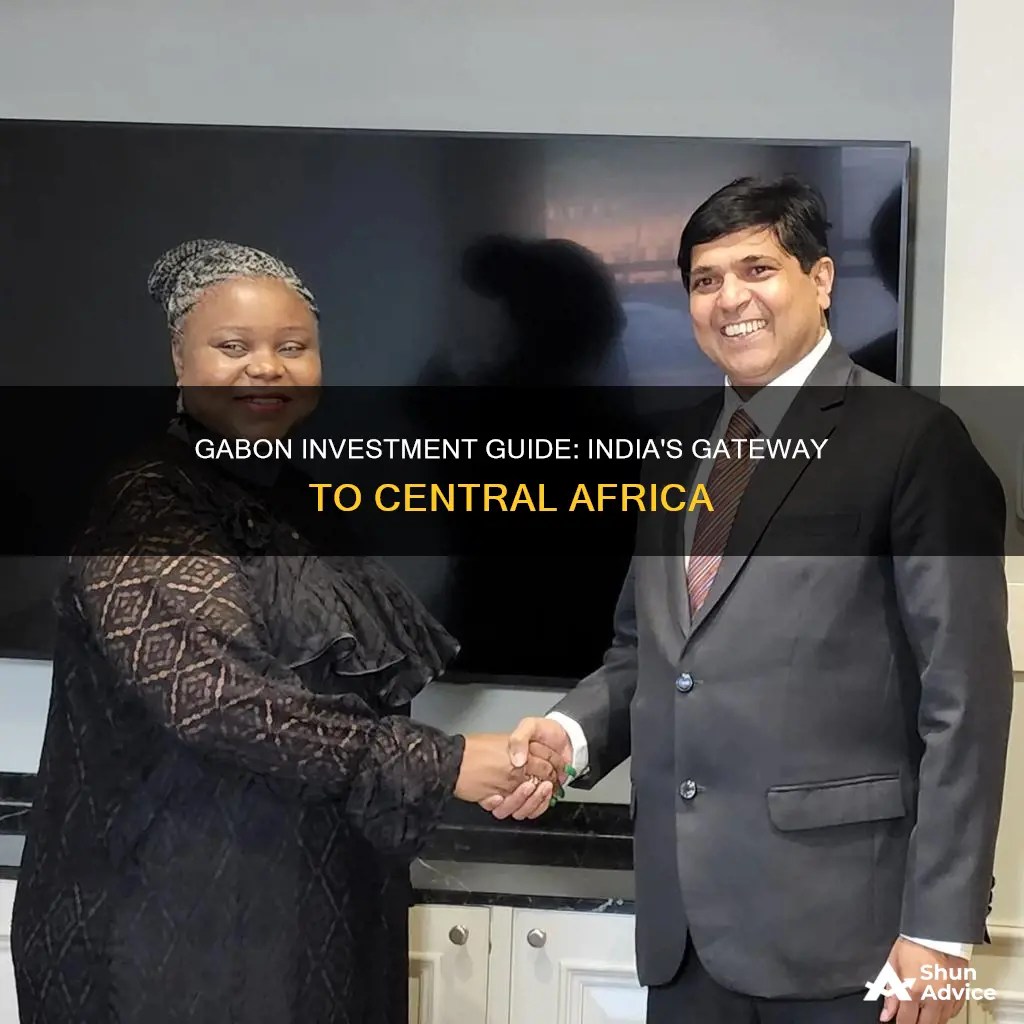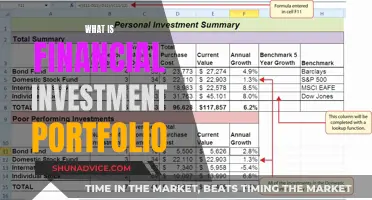
Gabon, a country on the west coast of Africa, has become an attractive investment destination for Indian firms. The country boasts a strategic location along the Gulf of Guinea, a small population of roughly 2.3 million, and an abundance of natural resources, including commercially popular resources like crude oil and utility-based resources like wood. Gabon has a mixed economy, with oil production being a major contributor to government revenues and export earnings. The country is also a significant producer of manganese and timber. The Gabonese government has been actively trying to attract foreign direct investment (FDI) and has implemented several reforms to diversify the country's economy away from oil and traditional investment partners. Gabon offers investment opportunities in various sectors, including oil and gas, infrastructure, timber, ecotourism, and mining. The country has established Special Economic Zones (SEZs) that offer tax advantages, preferential customs duties, and simplified customs procedures to companies. Additionally, Gabon has a stable political climate and is committed to sustainable development and environmental conservation, making it an attractive investment destination in Central Africa.
What You'll Learn

Natural resources and strategic location
Gabon is a country in Central Africa, situated on the western (Atlantic) coast of the continent. It is slightly larger than the Indian state of Uttar Pradesh and has a population of around 2.3 million. Gabon is a resource-rich country, with thick forest coverage, mineral wealth, and crude oil.
Forests
Gabon's dense forests cover an estimated 77-85% of the country's land area and are home to hundreds of tree species, which support an ecosystem of thousands of different fauna and flora species. The Okoume tree, used in the manufacturing of plywood, is the country's top forestry export item, with Gabon responsible for about 90% of the global production of the tree. Forestry is the country's second-largest industry in terms of export earnings, valued at over $0.3 billion in 2003. Gabon is also a pioneer in ecology and is actively working to protect its rainforests, making it a net absorber of carbon and a champion of carbon neutrality initiatives.
Minerals
Gabon is situated in a region known for its mineral wealth. The country has huge deposits of manganese, diamonds, gold, and uranium. Minerals are critical to the country's economy, with the entire economy revolving around the mining industry. Gabon is the leading producer of manganese in Africa and ranks sixth globally, producing more than 3 million metric tons each year. The country also has vast iron ore deposits in its northeastern region.
Oil and Gas
Gabon has the sixth-largest proven oil deposits on the continent, with an estimated 3.68 billion barrels of oil reserves. Oil is the country's largest export item and its chief source of foreign exchange earnings. Crude oil accounts for about 96% of the country's total exports to the United States. In addition, Gabon has enormous deposits of natural gas, estimated at over 28.3 billion cubic meters. Unlike its crude oil, which is primarily exported, Gabon consumes all of the natural gas it produces.
Strategic Location
Gabon's strategic location along the Gulf of Guinea and its membership in the CEMAC and other international organizations also make it an attractive destination for investment.
529 Savings Plans: Smart Investment Strategies, per Forbes
You may want to see also

Business environment and political willingness
Gabon has a business-friendly environment and its government has demonstrated a high degree of political willingness to improve the business environment and attract foreign investment. The country has implemented several structural changes, public works projects, and economic reforms to make it a more attractive destination for investment.
The Gabonese government has shown a strong commitment to sustainable development, environmental conservation, and economic diversification. It has actively tried to attract foreign direct investment (FDI) in recent years by implementing various development strategies, such as the Plan Stratégique Gabon Emergent (PSGE), which aims to transform Gabon into an emerging economy by 2025. The government has also established Special Economic Zones (SEZs) that offer tax advantages, preferential customs duties, and simplified customs procedures to companies operating within these zones.
Gabon's business environment has been characterised by a range of positive factors, including its strategic location along the Gulf of Guinea, political stability, and an abundance of natural resources. The country has a small population of around 2.3 million people and is a significant producer of oil, manganese, timber, and other natural resources.
However, there are also challenges and barriers to FDI in Gabon. The country faces issues such as limited market potential, bureaucracy, weak contract enforcement, an unskilled and expensive workforce, and poor infrastructure. Additionally, Gabon ranks low on the Ease of Doing Business rankings, with a poor performance in protecting minority investors and facilitating tax payments. The recent military coup in August 2023 is likely to hinder FDI inflows and cause uncertainty among foreign investors.
Despite these challenges, Gabon remains an attractive investment destination, especially for industries such as wood, cement, steel, scrap recycling, and gas. The country's business environment is constantly evolving, and the government's willingness to improve it makes Gabon a promising opportunity for investors from India and other countries.
Trade Deficits: Savings, Investments, and the Economy's Future
You may want to see also

Trade markets and relations
Gabon's ideal location along the Gulf of Guinea in West Africa has helped the country establish and boost trade relations with West and South-Asian countries, as well as its neighbours. Between 2009 and 2020, Gabon's exports to Equatorial Guinea increased at an annualised rate of over 22%. In the same period, the list of export items to Cameroon expanded, registering an increase of more than 6% annually.
Gabon's exports are diverse, ranging from crude oil to wood and timber. The country's dense forest cover, which constitutes close to 80% of its land, supports wood-based industries. Gabon is Africa's second-largest producer of wood and has a plan to become the world's leading producer of manganese. Gabon's timber sector has specific policies targeting deforestation, such as the ban on exporting raw timber.
Gabon has established the Investment Promotion Agency (ANPI-Gabon) to promote investment and exports, support small and medium-sized enterprises, manage public-private partnerships, and help companies establish themselves in the country. The country also has three operational Special Economic Zones (SEZs) that offer considerable tax and financial incentives to local and foreign investors. The success of the Nkok SEZ has led to the launch of two new SEZs in Inkolo and Mpassa-Lebombi, with a fourth planned near Port-Gentil.
Gabon is a member of the Economic and Monetary Community of Central Africa (CEMAC) and the larger Economic Community of Central African States (ECCAS). As a member of CEMAC, Gabon's trade with other member countries (Cameroon, the Central African Republic, Chad, the Republic of Congo, and Equatorial Guinea) is subject to low or no customs duties.
Gabon has bilateral investment treaties (BITs) in force with the Belgium-Luxembourg Economic Union, China, Germany, Italy, the Republic of Korea, Morocco, Romania, and Spain. The country has also signed BITs with Egypt, Lebanon, Mali, Mauritius, Portugal, South Africa, and Turkey, although these are not yet in force.
Passive Investment Portfolio: Strategy for Long-Term Wealth
You may want to see also

Investment opportunities and incentives
Gabon is a resource-rich country on the west coast of Africa, with dense forest cover supporting wood-based industries. The country's strategic location along the Gulf of Guinea, its stable political climate, and its abundance of natural resources make it an attractive investment destination. Here are some of the key investment opportunities and incentives in Gabon:
- Natural Resources: Gabon has massive reserves of globally scarce resources like oil and gas, as well as globally cherished resources like forests. The country's dense forest covers nearly 80% of its land, providing rich timber for the profitable furniture and plywood sector.
- Business-Friendly Environment: Gabon has been working to improve its business environment, attracting new ventures and investors. The government has introduced systematic and structural reforms, such as the Local Infrastructure Development Project in collaboration with the World Bank, which aim to enhance transparency and provide employment opportunities.
- Special Economic Zones (SEZs): Gabon has established several SEZs, particularly at Nkok, Inkolo, and Mpassa-Lebombi, which offer significant tax and financial incentives for local and foreign investors. These zones provide dedicated infrastructure, preferential customs duties, and simplified customs procedures, creating a conducive environment for industrial development.
- Diversification of Economy: Gabon has been actively trying to diversify its economy away from oil and traditional investment partners. The country promotes foreign investment in various sectors, including infrastructure, ecotourism, agriculture, and manufacturing. This provides a range of investment opportunities beyond the traditional petroleum and mining sectors.
- Sustainable Practices: With 85% of the country covered in forests, Gabon is a staunch advocate for sustainability and environmental conservation. The country has implemented initiatives like the tracer initiative by GSEZ, which ensures that all wood entering the industrial zone is 100% legal and traceable, demonstrating its commitment to protecting its natural resources for future generations.
- Multi-Sectoral Opportunities: In addition to its natural resource sector, Gabon offers investment opportunities in multiple sectors. The growing population and abundant natural resources have triggered a demand for consumer goods, FMCG, logistics, transportation, and communication services. This provides a diverse range of investment avenues for interested parties.
- Bilateral Investment Treaties (BITs): Gabon has bilateral investment treaties in force with several countries, including China, Germany, Italy, and Morocco. These treaties provide a framework for secure and mutually beneficial investment relationships, enhancing the country's attractiveness for foreign investors.
Actively Managed Investments: What Are They?
You may want to see also

Economic stability and diversification
Gabon is a historically stable country with a small population of around 2.3 million and an abundance of natural resources. It has a mixed economy driven by the oil, mining, and timber sectors, with oil production being a major contributor to government revenues and export earnings. However, the country has been working to diversify its economy away from oil and traditional investment partners such as France. The Gabonese government has implemented several reforms to attract foreign investment across a range of sectors, including infrastructure, ecotourism, agriculture, and manufacturing.
One of the key initiatives to promote economic diversification and foreign investment is the establishment of Special Economic Zones (SEZs). The first SEZ was set up in Nkok near Libreville in 2010, offering tax incentives, dedicated electricity and water services, and preferred access to the deep-sea port of Owendo. With the success of the Nkok SEZ, two new SEZs were launched in Inkolo and Mpassa-Lebombi, with a fourth planned near Port-Gentil. These zones provide tax advantages, preferential customs duties, and simplified customs procedures, making them attractive locations for foreign investors.
Gabon's commitment to sustainable development and environmental conservation has also gained international recognition. The country has promoted sustainable logging practices and strict forestry laws, with the goal of becoming the world's leading producer of manganese while protecting its vast forest cover. Additionally, Gabon has invested in infrastructure development, including transportation and energy projects, which are crucial for long-term economic stability.
Despite these efforts, Gabon still faces challenges such as income inequality, high unemployment, and a lack of economic diversification. The country ranks low on the Ease of Doing Business rankings, with foreign investors facing hurdles in establishing new businesses, accessing utilities, and transferring company ownership. Additionally, corruption and a lack of transparency continue to impede investment. However, the Gabonese government has agreed to implement significant governance and transparency reforms as part of its IMF Fund Facility arrangement.
Overall, Gabon's economic stability and diversification efforts present a unique opportunity for investors, particularly in sectors like oil and gas, forestry, mining, and ecotourism. The country's business-friendly environment and supportive government policies make it an attractive destination for those looking to contribute to the nation's progress while securing substantial returns.
US VCs: The Future of Indian Startups?
You may want to see also
Frequently asked questions
Gabon has a small population (roughly 2.3 million), an abundance of natural resources, and a strategic location in the Gulf of Guinea. The country has historically been stable in a volatile region.
Gabon offers investment opportunities in various sectors, including oil and gas, forestry, mining, agriculture, and ecotourism.
Gabon has a business-friendly environment with supportive government policies. The country has streamlined processes for doing business, and investors can benefit from tax incentives and preferential customs duties in special economic zones.
You can find business opportunities in Gabon by joining relevant business communities and networks, such as the Africa Business Community and the AFSIC African Investments Dashboard. These platforms allow you to connect with companies, investors, and business leaders in Gabon and promote your own business or investment opportunities.
Some challenges of investing in Gabon include bureaucracy, inconsistent customs regulations, lack of transparency, corruption, and a small domestic market. Additionally, foreign investors may face hurdles in establishing new businesses, accessing utilities, and transferring company ownership.







